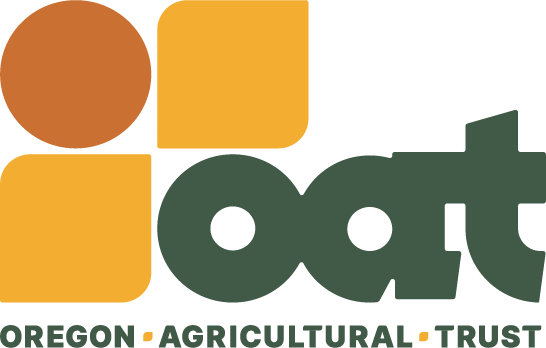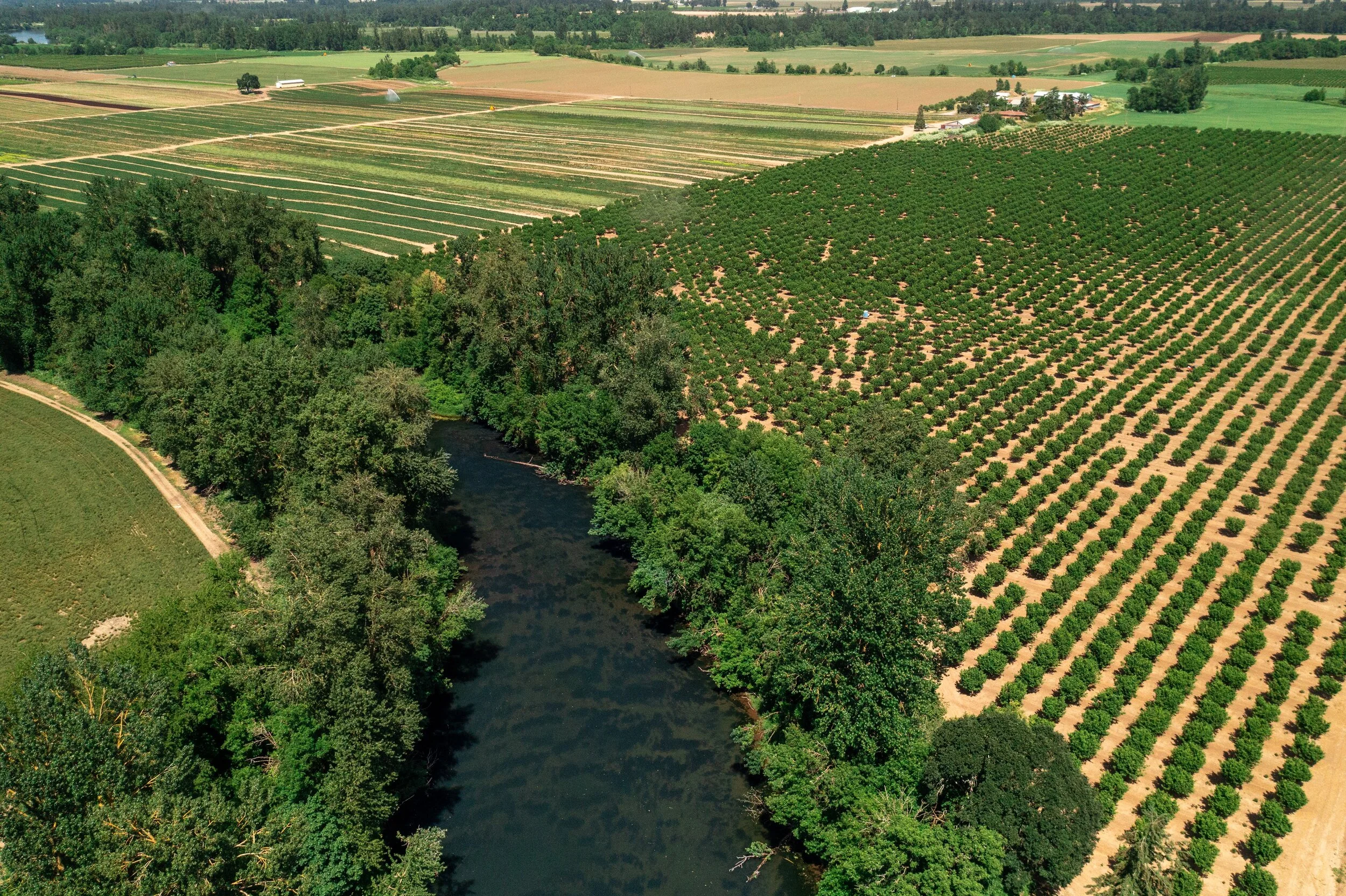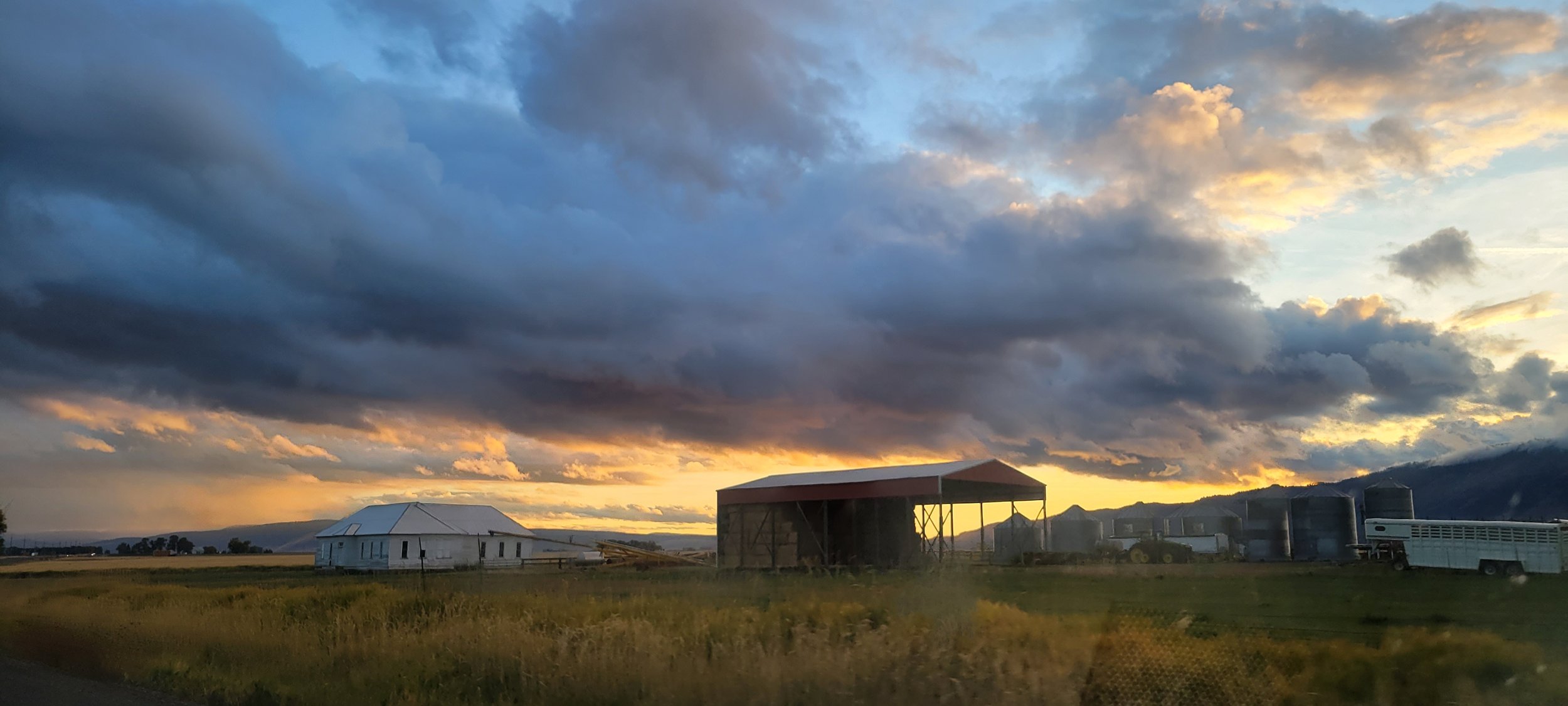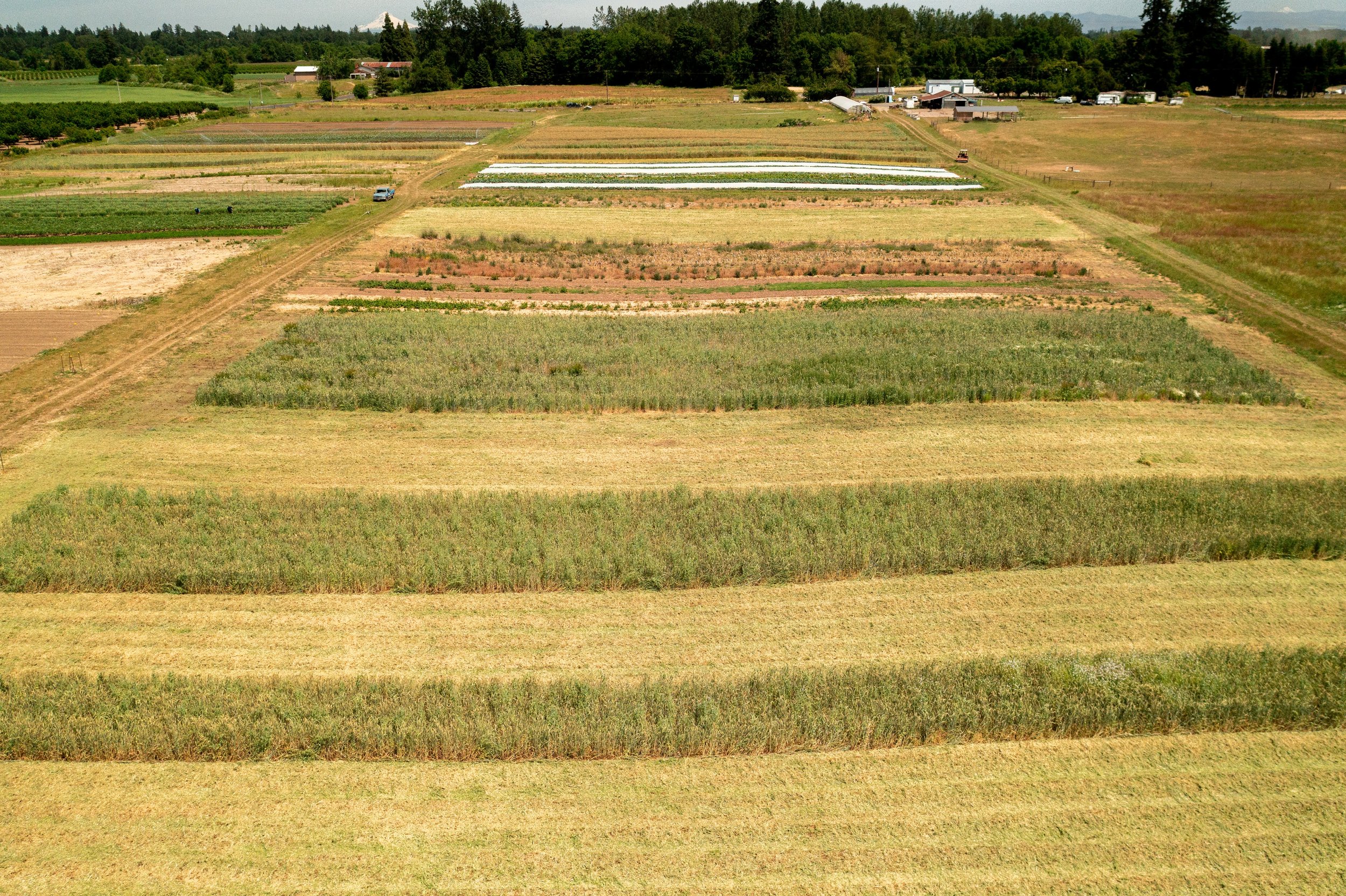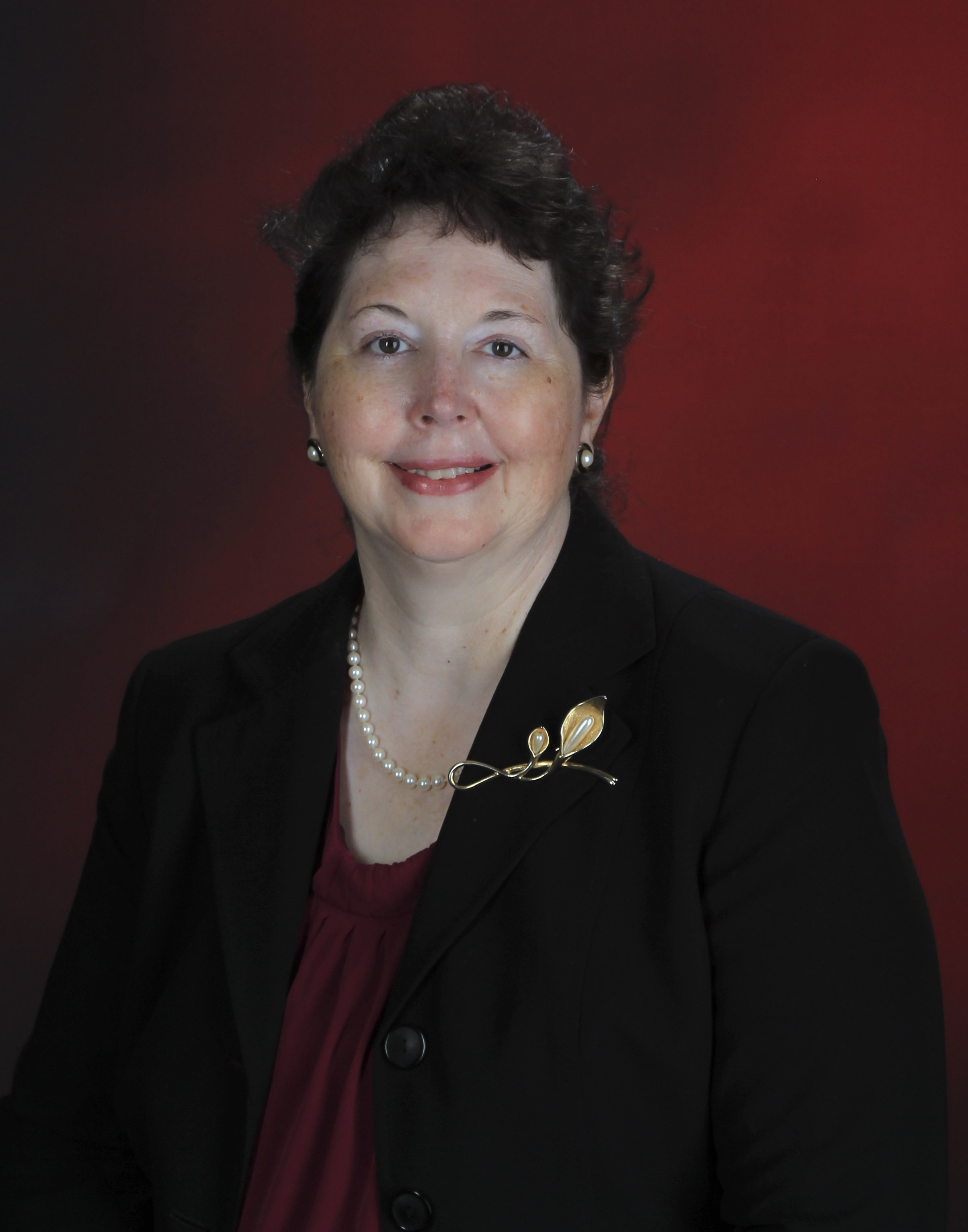“For me, it's like peeling an onion. Layer by layer you get closer to what you want.”
— Diana Tourney, Clackamas SBDC
OAT’s Communications Manager, Cynthia Lopez sat down with Diana Tourney, Accountant and Small Business Development Center Counselor at Clackamas Community College, to learn more about her work as a succession planning educator for farmers and ranchers. In part two of their conversation, Diana recommends how much time to allow for succession planning and the first three steps producers should take to get started with it. You can read part one here.
CL - How much time do you recommend somebody give themselves to complete a transition?
DT - I'm seeing it take three to five years allowing plenty of time for research, family meetings and talking with professionals who can help you with a solid transition. I've heard seven to ten years for a more complex operation. Many people don't understand that if you raise cattle, that's one thing. If you have grazing on your property, that's another. If you rent, if you have vegetables that you grow in row crops, or you grow them in greenhouses, you have an additional complexity. If you haul to market, you have yet another. If you do farm-to-table, agritourism - we're talking a very complex business model. And that isn't something that just transitions itself overnight. You are probably doing quite well because you are diversified. But if you keep waiting, things happen.
Photo by Marc Hudson, OAT Rangeland Program Director
CL - What would be a good first three steps for somebody who wants to get started on succession planning?
DT - Your first step is get going and quit procrastinating. When I say get going, I would recommend that you start an assessment of what you want. What do you want and need out of the transition? Do you want to stay on the farm, can you age in place? Do you have people readily trained or have you just added a whole series of things because people have to come in and learn the crop or livestock cycles? There are no wrong answers and let’s replace regret with something worthwhile: possibilities.
What are your values? At Clackamas I call it Dare to Dream. You sit and really think about where you're going to live, what do you need, how much money do you need? If someone else is going to be joining you in this dream - you have a spouse or partner - you need to make sure that your dreams sync up or there needs to be some give and take. Sometimes I've had couples with different goals – I mean totally different plans for retirement. One can't see themselves living anywhere else other than the farm, and the other one says, “Get me out of here.” If those folks are going to stay together in the transition, it's when the wheels come off the bus. It’s better to work somewhere in the middle so everyone feels valued and feels they can pursue what’s next.
CL - So the initial two steps are, first, deciding what you want and need out of a transition, and, second, talking about what you want with the people who are directly involved. And then what is step three?
DT - Great question. We invite them to come into our program to begin learning processes and steps, because the learning component takes some time. This means digging deep and creating a path for the transition that matches your values, respects your legacy and honors your family. In many cases they have concerns for community and special pursuits. And just like you spent a lot of time working on your farm, you are being invited to spend time taking a step back and asking: “Is this what I want to do and how I want to proceed?” The only way to really solidify the future is to take an active part. Of course there will be some concerns and things you wish to avoid – learn how to address them. Neighbors may have stories of things that have happened that are unfortunate – choose a different outcome.What would make you really angry or sad if that happened to you? Take note and find solutions.
Some people that I have in my class have their trust and will all set up. They looked at this 10 or 15 years ago, and thought, “I've got it done, I'm good to go.” Several of these same folks express after class: “Holy cow, I need to go back to the drawing board because I had no idea!” They thought they were settled, and too much has changed. Tax laws change, federal and state, land use laws change, we see redistricting of parcels . . .what was EFU ends up being, at the stroke of a pen changed into a parking lot, big box store or lots of houses. Everything you thought may not be the case. We spend time learning about working lands and conservation easements and other tools.
At tax time we do all sorts of reviews in preparation of taxes. I know this is because I'm an accountant, but I think it's a really good reminder time: have you talked to your insurance agent lately? Is there any kind of activity that really needs to be dealt with? You're doing something different on the farm so you have a different risk. I've had people that never grew livestock, and then they start a new venture without updating insurance. Sitting with your insurance agent is very important to describe how things have changed. We don't have that old combine anymore, I got a new one. It's great that it knows how to go up and down the fields because it has a computer in it and you can operate it from the office. What happens when the WiFi goes out and it continues into the river or the highway? You need to think about how things have changed from this year to last year. and make sure your insurance agent knows.
A lot of people don't think they have to go to their attorney each year. This is reserved many times until there is a problem. Be proactive and talk to your attorney just like the insurance agent. Explain what has changed and have them review agreements and contracts. There may have been important developments you should be aware. Think of this as an annual health check from a legal perspective.
Your accountant is the same, because taxes have changed and depreciation cycles may be different. Some thresholds have changed. This is another key meeting to help you keep more of the hard-earned income through tax management strategies.
Other key meetings should include your banker and an agricultural real estate agent, even if you don't think you want to sell. Be curious about what changes they are seeing, new products available. It’s a lot more than Zillow and looking at interest rates.
The final professional that I recommend you see, maybe not yearly but periodically, is an appraiser. Appraisers are in short supply – they are really busy . . . remember the thousands of farms and ranches up for sale? They are like the albino mule, hard to find when you want one. But you're supposed to have your information to the IRS within four months of your passing. You can get an extension, but the average appraiser that I've worked with, and I tried to get them to come speak in my classes, and some of them have told me they’re 12 and 16 months out right now. You pay such a premium to get them to drop somebody else and come do yours. As a next chapter, I’ve had some farmers and ranchers become certified appraisers – it puts their knowledge to work and a great income!
We discuss techniques in class to work with all these people to make sure you're staying up on it, and you're not afraid. Getting all the documents in place and reviewing them is important.
Diana Tourney, Accountant and Small Business Development Center Counselor at Clackamas Community College
I don't want people to be scared off in taking this class. We do work, but have some fun exploring what is available.
For me, it's like peeling an onion. Layer by layer you get closer to what you want. For me, I’ve worked really hard, sometimes two jobs, plus the farm. It was tight sometimes and helping care for the most amazing man – my dad – was a quadrapletic with MS. I wanted the best and was not afraid to work for it – does this sound familiar? I understand farmers and ranchers because I am one.
Let’s take this farming/ranching business and make sure the memories continue, good memories.
If you’d like to learn more, visit the Small Business Management Farm and Ranch Succession Planning Program at Clackamas Community College’s SBDC.
